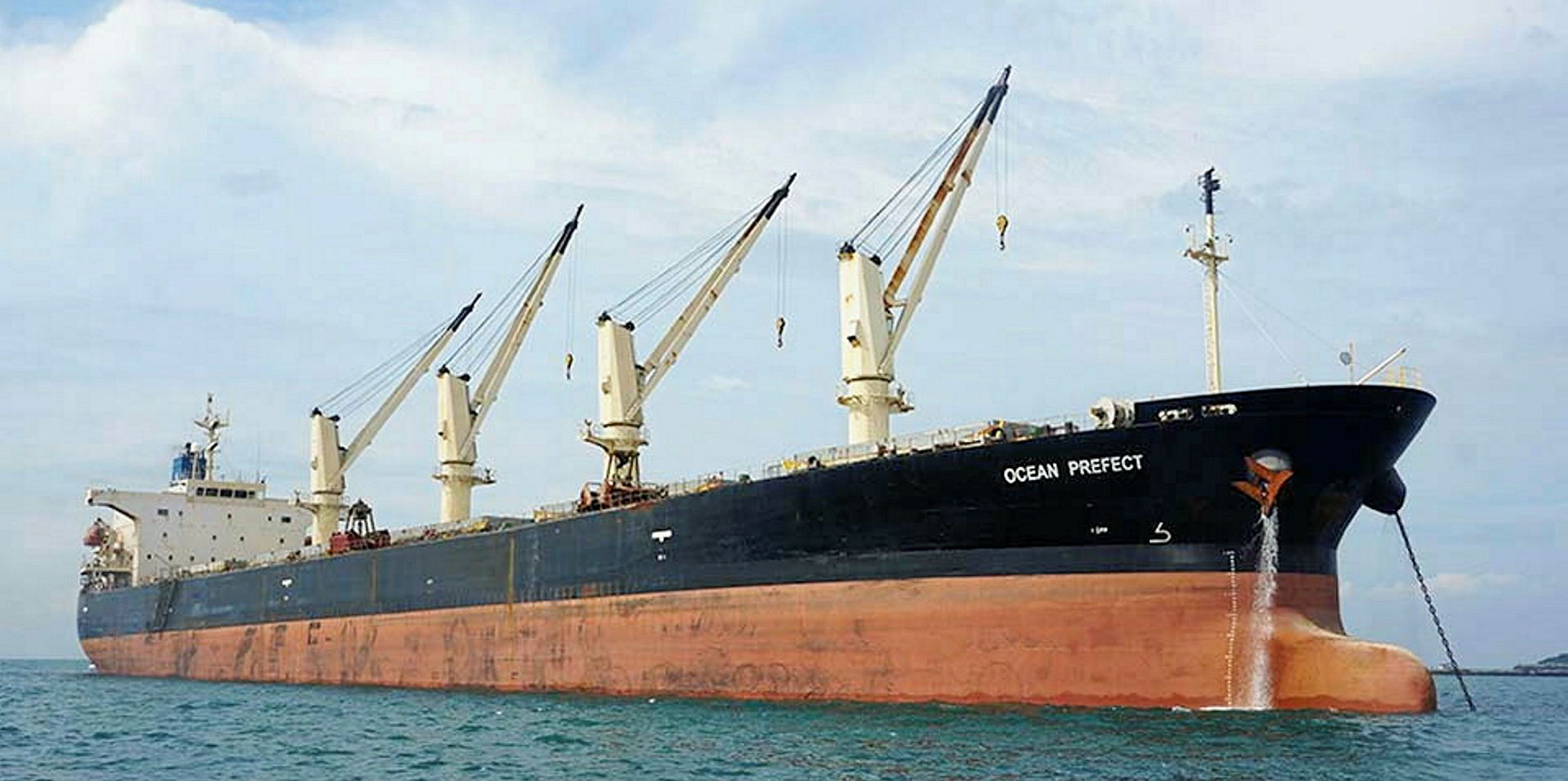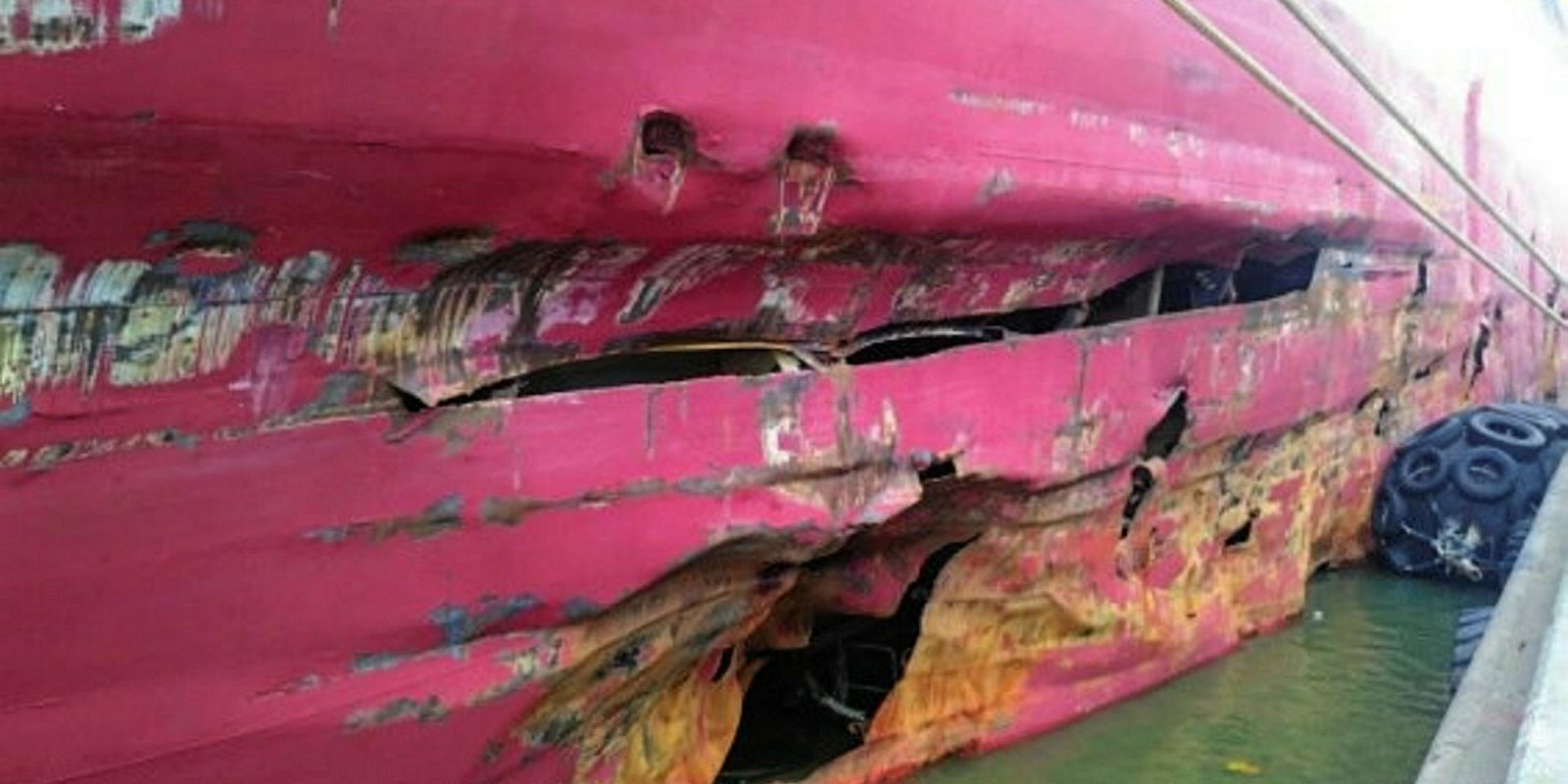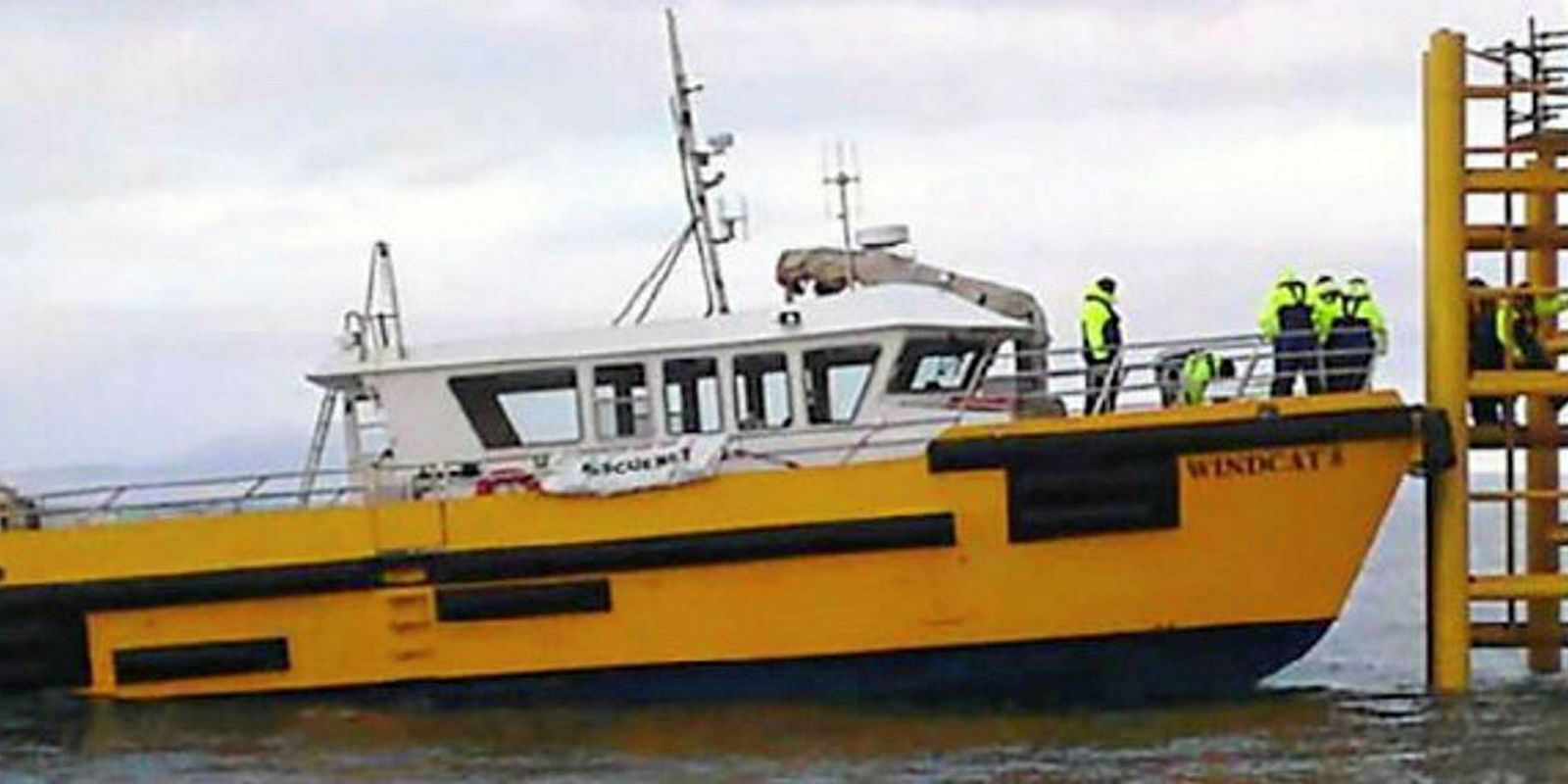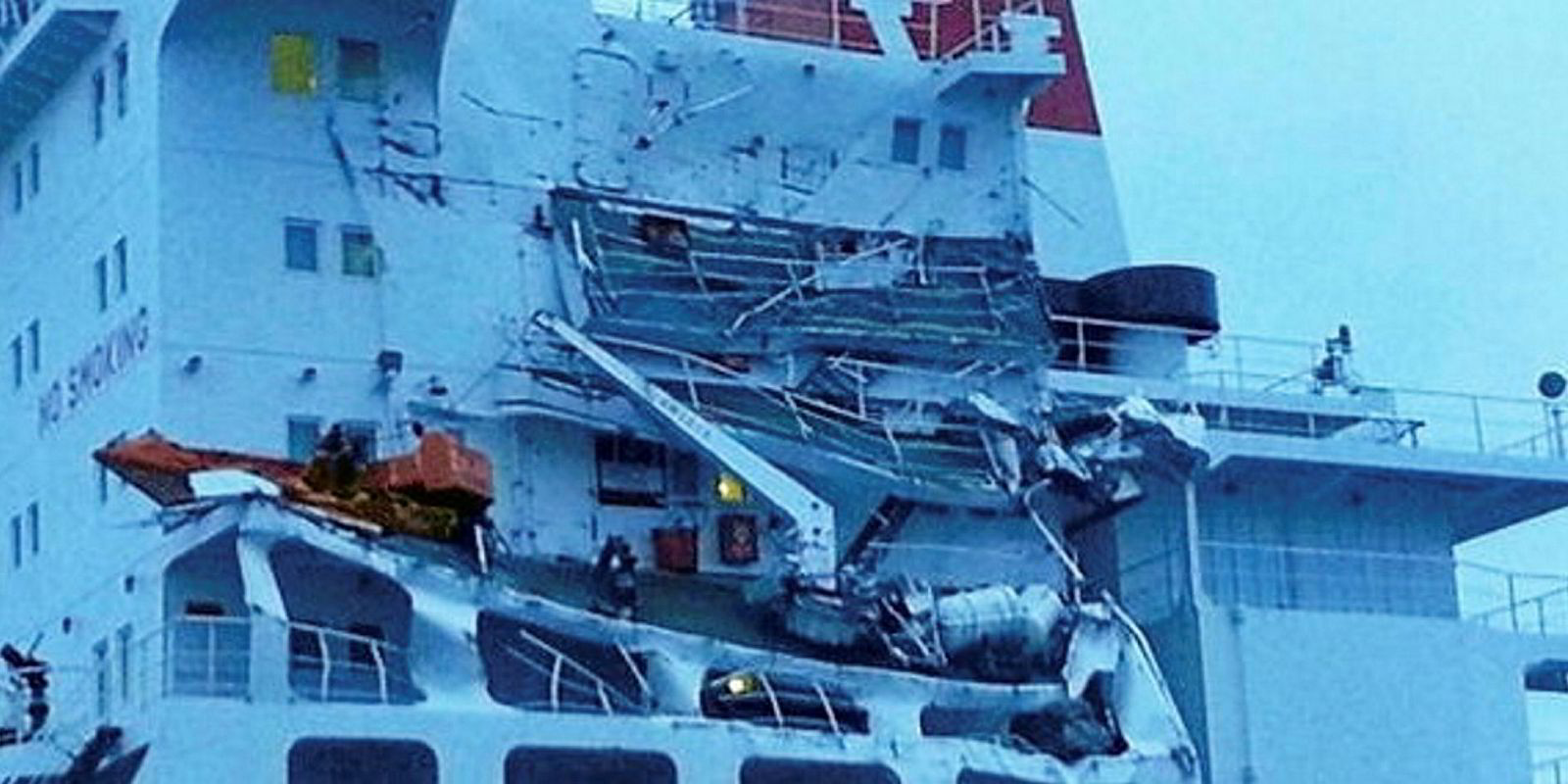A V.Ships-managed bulker grounded twice in two days off the UAE due to two pilots' lack of local experience, an accident report has founded.
The UK-flagged, 53,000-dwt Ocean Prefect (built 2003), owned by Lomar Shipping, suffered two accidents while approaching the port of Ahmed Bin Rashid in Umm Al Qaywayn on 10 and 11 June last year, the UK's Marine Accident Investigation Branch (MAIB) said.
It was not damaged in the first grounding and refloated 12 hours later with the help of tugs.
But three ballast tanks were breached in the second incident, which required the vessel to drydock in Dubai for repairs.
MAIB said the two Indian pilots, despite extensive experience elsewhere, had very limited local knowledge and had only previously completed two pilotage acts in the port.
It also said the effect of a tidal set was influential in both groundings, but the available tidal stream data for the port was insufficient to plan the safe passage of deep-draught vessels in the narrow approach channel.
After the first grounding, the master and the pilots discussed the proposed entry and berthing plan and agreed to keep the vessel to the east side of the channel in anticipation of experiencing tidal conditions similar to the previous day.
The ship passed between No.3 and No.4 lateral posts, and seconds later, there was an exchange across the bridge between the pilot and the berthing pilot about an alteration of heading to starboard.
Shuddering rocks the ship
During this, the pilots gave different starboard helm orders, which prompted the helmsman to seek clarification from the master, MAIB said.
The master told the helmsman to follow only his orders.
Seconds later, shuddering and heavy vibration was felt on board Ocean Prefect and the vessel’s speed reduced for a few seconds to less than three knots.
The chief officer, who was on the port side of the main deck adjacent to the accommodation, investigated an unusual loud noise and found air rushing from a ballast tank vent.
Ballast tanks were flooding and the vessel had also developed a three-degree list to port.
On the first grounding, MAIB said: "That the pilot initially steadied Ocean Prefect on the channel axis of 167 degrees indicates that he had not anticipated a tidal set. The pilot’s perspective was influenced by an expectation that the tidal stream would be slack."
On the second grounding, it added: "The tidal stream had been anticipated and the headings steered countered the tidal set and Ocean Prefect remained within the channel.
"However, the tidal set diminished soon after Ocean Prefect passed No.4 post. This was not anticipated or noticed by the master, or the pilots."
Port provisions inadequate
MAIB said: "A fundamental contribution that pilots are expected to make to vessel safety is their detailed knowledge of a port’s environment and operations.
"In this case, the embarked pilots, although experienced elsewhere, were not fully familiar with Umm Al Qaywayn and its approaches.
"They had not been given access to recent survey data, their survey of the dredged channel and the tidal streams was very limited and their only previous acts of pilotage in Umm Al Qaywayn had been on board San Nicolas, immediately before embarking on board Ocean Prefect."
It found Ahmed Bin Rashid Port lacked resources and marine expertise and took no responsibility for pilotage.
Ocean Prefect’s pilots were permitted to operate in the port to provide competition and reduce pilotage costs for shipowners, it said.
The port authority has agreed that pilotage for vessels calling at the container and bulk terminal facility will be arranged only through it and not agencies.
V.Ships sent a directive to crew saying that the master/bridge team must be aware that "the pilot orders are for consideration and where appropriate, they should challenge the pilot as required to ensure the safety of the vessel.
"The bridge team must remain alert to the vessel’s passage during pilotage and not be lulled into a false sense of security that the pilot’s actions are failsafe."






